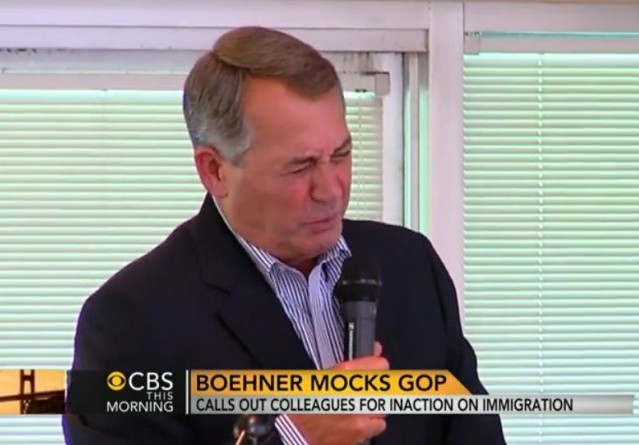Gallup: Americans Still Don’t Like Congress
What does it mean for midterms?

Candidates have been criss-crossing their respective districts for well over a year now, laying out their platforms and making promises about how they’ll bring change to the offices they hope to hold.
But judging by Gallup’s latest poll, Americans aren’t necessarily buying what their potential representatives are selling. With just days to go before the election, the Congressional approval rating is still hovering just above its all-time low.
Via Gallup:
Congressional job approval in October matches the 14% average found so far in 2014.
The current approval figure is the lowest found in October of a midterm election year since Gallup began tracking this measure in 1974. Gallup has found that low congressional approval ratings before midterm elections are linked to higher seat turnover, especially for members of the president’s party. For example, congressional job approval in October was 21% in 2010, and 23% in 1994, two years when the president’s party lost a large number of seats.
However, in other years when approval of Congress was in the 20% range, seat loss was not as extreme. This suggests that although low congressional approval is related to seat loss for the president’s party, it is not a perfect predictor of what will happen in the upcoming elections. There likely are other factors at play, such as low presidential job approval and whether the president’s party is the majority party in Congress.
A low approval rating may not be a perfect predictor, but coupled with Republican momentum in battleground Senate races and an increasingly polarized and generally dissatisfied electorate, it looks as though dissatisfaction with Congress could play a huge part in helping put Republicans over the top.
This is a completely exploitable piece of data, and what it tells us about the electorate works well with existing general messaging strategy: we don’t have a “Do Nothing Congress.” We have “Do Nothing Democrats” who spend more time playing partisan politics than they do actually governing.
Majority or no, Republicans will need to ride this wave for as long as they can. Obama still has two more years left, and overcoming his veto pen may have less to do with more numbers and more to do with fears that souring public opinion will destroy whatever legacy he has managed to cobble together.
 DONATE
DONATE
Donations tax deductible
to the full extent allowed by law.








Comments
Congress should HAVE adopted a plan of some kind to run on. They didn’t, so NOW they can adopt a plan to govern on.
This one ain’t bad, and there could be lots of variations…
1.Cut a penny from every dollar the government spends for six years, which will result in a balanced budget;
2.Pass a balanced-budget amendment to keep it that way;
3.Limit the amount of taxes the government can collect;
4.Encourage home-grown energy resources, conquering in one fell swoop unemployment, high energy prices and dependence on hostile foreign powers;
5.Replace Obamacare with health-care savings accounts so people can use the money to buy their own insurance in the private market;
6.Enact term limits: six years in the House, with only one term in leadership, and 12 years in the Senate with only two years in leadership;
7.Allow school choice; and
8.Secure the borders.
Both California and Michigan term limited their state legislatures back in the 1980s. In both states it served to empower the union lobbyists and the state bureaucrats. Tell me why you expect a different result on the federal level.
First, I don’t accept your premises.
Not one bit.
I’m from Michigan originally. I can say that in the 1980s EVERYTHING in Michigan served to empower union lobbyists and the state bureaucrats, lol.
Perhaps this is why, per Ms. Miller’s previous piece, the Pub candidates aren’t yet outside the margin of fraud…
My nephew is old enough to vote next week for the first time. He asked me what the GOP platform was. I drew a blank.
News flash: Congress has NEVER been popular. Ever.
The reason for the ‘all-time low’ numbers is that we’ve become a more partisan nation. While equity markets like gridlock in DC, Democratic voters blame the House and Republicans blame the Senate for the lack of progress in setting the state in order. Independents blame both.
That doesn’t leave a huge universe of potential approvals out there.